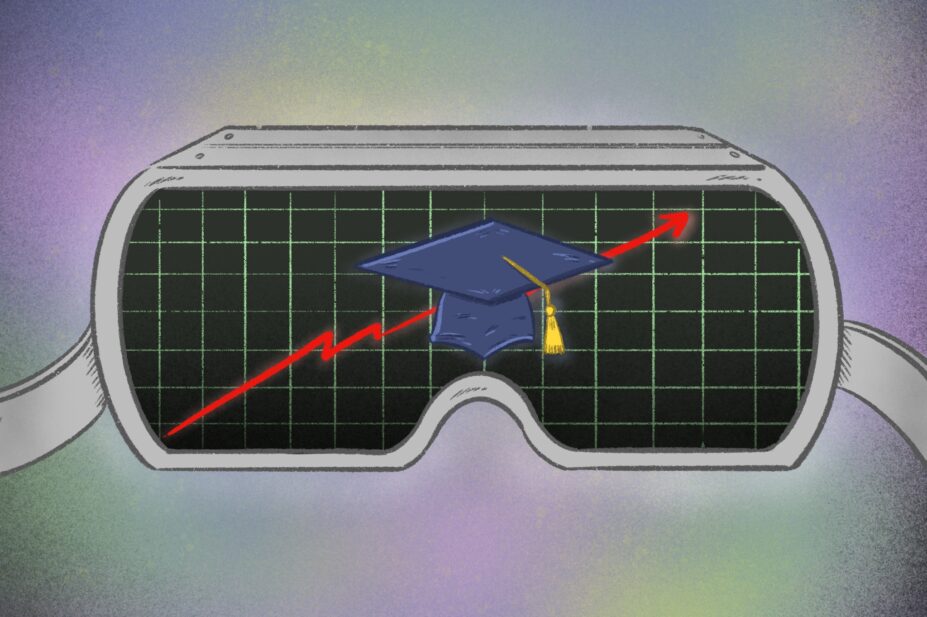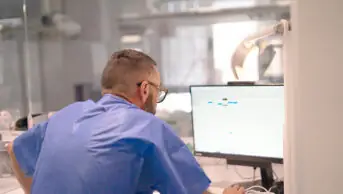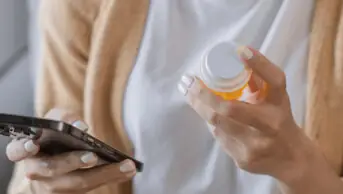
WES MOUNTAIN / THE PHARMACEUTICAL JOURNAL
Imagine… you are 14 years of age and back in secondary school. You have had a few days’ work experience here and there and got a few ‘jobs’ lined up to keep you busy throughout the summer holidays. You have exams coming up, and you are constantly being asked the same question by family, teachers, friends: ‘What do you want to do when you leave school?’ You just don’t know — and wish they would stop asking!
Some children have their lives mapped out from the day they set foot in the classroom; while others are content with running around and kicking a football, blissfully unaware of the 50+ years that they will be spending at work.
When I was setting myself up for an application to university to study pharmacy, I sent letters to what seemed like every pharmacy in South Wales, trying to get some work experience. I didn’t get a single reply and, sadly, was probably not the only person to experience such widespread rejection. While this did not put me off applying to study pharmacy, the lack of work experience opportunities may have put off other prospective students — with tangible consequences.
Health boards in Wales are seeing an average vacancy rate of 20% across the pharmacy workforce, making the Welsh government and Royal Pharmaceutical Society’s ambition to transform pharmaceutical care across Wales more challenging than ever. How can we expect to remedy this situation if teenagers are not given an opportunity to experience a career in pharmacy for themselves?
Virtual reality (VR) resources can provide a ‘real-life’ feel to what you can expect to see and hear in these settings, with gamification to further facilitate interaction with the tech-savvy Gen-Z. Since September 2023, I have been creating ‘Pharma-SEE!’ with the help of Goggleminds, a start-up VR company founded in Wales. It is, essentially, a virtual work experience. It allows teenagers to use their phones, laptops, tablets, and VR headsets to experience what it is like to work in community pharmacy, with audio to guide and enhance the learning experience, and ‘checkpoints’ to shift focus and create a more holistic experience.
I want to move away from the days where children are spoken at for hours or given a university prospectus — I want them to experience the role and the workplace for themselves
I had the idea during my first week as a clinical Fellow at Health Education and Improvement Wales (HEIW), after looking at what other professions and industries are doing to inspire children and educate their workforce. In November and December 2023, I was invited to speak at primary and secondary schools in South Wales to talk about the pharmacy profession. From then, it was clear that the NHS and the health and social care sector is not doing enough to inspire children. I want to move away from the days where children are spoken at for hours or given a university prospectus — I want them to experience the role and the workplace for themselves.
Pharma-SEE! will offer all children the chance to engage in a novel, enjoyable learning experience, showcasing the diverse roles within the pharmacy team, advances within the profession and the sectors in which they could join. This will also assist the development of their emotional intelligence and empathic skills, which will aid their personal and professional development regardless of career path. The programme also fits with HEIW’s objective to ‘develop an inclusive, strategic, All-Wales approach to promoting all pharmacy team careers in Wales’.
Virtual reality helps to create an equitable reality, held within an immersive learning environment. By enabling a higher number and more diverse set of children and teenagers to experience what it would be like to be a pharmacy professional, the greater the chance of creating a more diverse workforce that best reflects the populations that we serve.
Data from Health Education England’s ‘2021 Community Pharmacy Workforce Survey’ highlighted that only 7% of pharmacists identified as black (including African, Caribbean, and black British) and that 92% of pharmacy technicians were female in England. This lack of diversity may be preventing us from addressing the diverse needs of our patient populations, leading to a decrease in patient satisfaction, and inadvertently increasing healthcare inequalities.
Fostering diversity in the pharmacy workforce at all levels is being steered by the Inclusive Pharmacy Practice initiative, with an emphasis on improving the diversity of people in senior pharmacy leadership roles. Allowing for a greater set of perspectives and experiences at senior level creates an increased level of awareness, potentially leading to better innovation and creativity to help manage our patient populations.
VR resources are becoming increasingly common in sectors outside of healthcare. Their accessibility allows users to gain experience at a time and place where they feel comfortable, minimising the anxiety that we are all familiar with when being somewhere for the first time — something extremely important to the neurodivergent and disabled community. Creating confidence from a younger age allows future generations to become more familiar, prepared and confident, empowering them to drive the conversation (as opposed to it being led by a healthcare professional).
Overall, introducing children to the profession of pharmacy at a young age can have numerous benefits, including educational, career-orientated, and health-related advantages. It can empower them to make informed decisions about their own health and inspire future generations of pharmacy professionals, something which we can all agree that is much needed. There has, understandably, been a barrier for children accessing work experience in the health and social care sector, but given the advances in technology and digital lifestyles, this allows users to be closer than ever before.
Pharma-SEE! will be a guided resource, so there will be no expectation for schools or teachers to directly support this. Details on how the resource can be accessed are set to be released in summer 2024.


